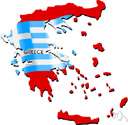Ac·ti·um
(ăk′shē-əm, -tē-) A promontory and ancient town of western Greece. In 31 bc it was the site of Octavian's naval victory over Mark Antony and Cleopatra. As a result of the battle, Egypt came under Roman control and Octavian (later Augustus) was established as Rome's ruler.
American Heritage® Dictionary of the English Language, Fifth Edition. Copyright © 2016 by Houghton Mifflin Harcourt Publishing Company. Published by Houghton Mifflin Harcourt Publishing Company. All rights reserved.
Actium
(ˈæktɪəm)n
(Placename) a town of ancient Greece that overlooked the naval battle in 31 bc at which Octavian's fleet under Agrippa defeated that of Mark Antony and Cleopatra
Collins English Dictionary – Complete and Unabridged, 12th Edition 2014 © HarperCollins Publishers 1991, 1994, 1998, 2000, 2003, 2006, 2007, 2009, 2011, 2014
Ac•ti•um
(ˈæk ti əm, -ʃi əm)n.
a promontory in NW ancient Greece: Antony and Cleopatra were defeated by Octavian and Agrippa in a naval battle near here in 31 B.C.
Random House Kernerman Webster's College Dictionary, © 2010 K Dictionaries Ltd. Copyright 2005, 1997, 1991 by Random House, Inc. All rights reserved.
ThesaurusAntonymsRelated WordsSynonymsLegend:
| Noun | 1. |  Actium - an ancient town on a promontory in western Greece Actium - an ancient town on a promontory in western GreeceEllas, Greece, Hellenic Republic - a republic in southeastern Europe on the southern part of the Balkan peninsula; known for grapes and olives and olive oil |
| 2. |  Actium - the naval battle in which Antony and Cleopatra were defeated by Octavian's fleet under Agrippa in 31 BC Actium - the naval battle in which Antony and Cleopatra were defeated by Octavian's fleet under Agrippa in 31 BCEllas, Greece, Hellenic Republic - a republic in southeastern Europe on the southern part of the Balkan peninsula; known for grapes and olives and olive oil |
Based on WordNet 3.0, Farlex clipart collection. © 2003-2012 Princeton University, Farlex Inc.